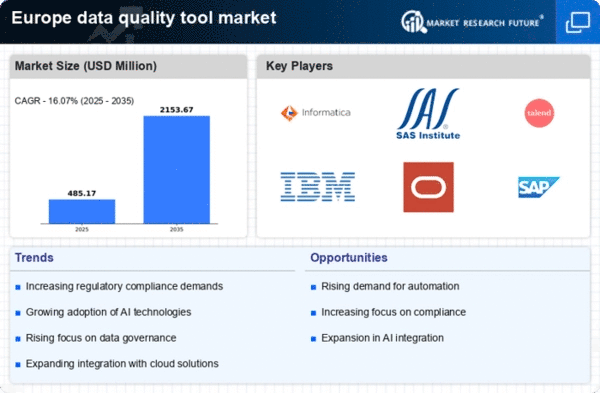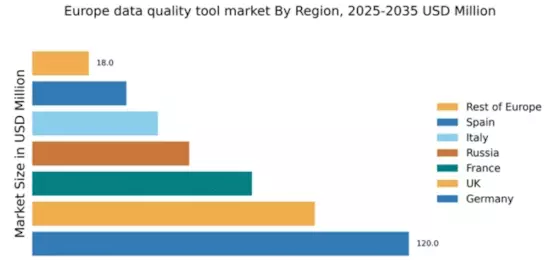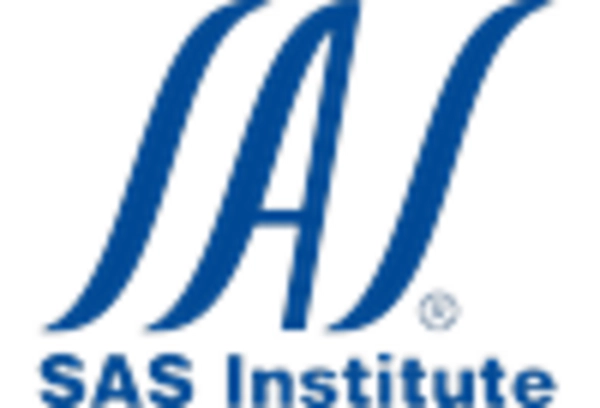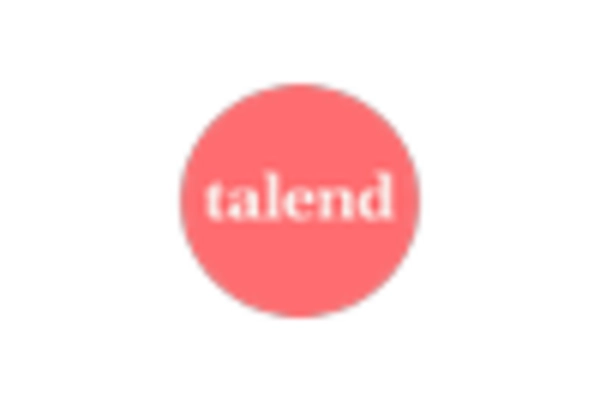Germany : Strong Demand and Innovation Hub
Germany holds a commanding market share of 120.0, representing a significant portion of the European data quality-tool market. Key growth drivers include a robust industrial base, increasing data regulations, and a strong emphasis on data governance. The demand for data quality tools is driven by sectors such as automotive, finance, and healthcare, where data accuracy is critical. Government initiatives promoting digital transformation further bolster market growth, supported by advanced infrastructure and a skilled workforce.
UK : Innovation and Compliance Drive Growth
The UK market for data quality tools is valued at 90.0, reflecting a strong demand for compliance and data management solutions. Growth is fueled by stringent data protection regulations like GDPR, which compel organizations to enhance data quality. The financial services sector, particularly in London, is a key driver, alongside emerging tech hubs in Manchester and Bristol. The competitive landscape features major players like Informatica and SAS Institute, with a focus on innovative solutions tailored to local market needs.
France : Regulatory Compliance Fuels Demand
France's data quality-tool market is valued at 70.0, driven by increasing regulatory requirements and a growing emphasis on data analytics. The French government supports digital initiatives, enhancing the demand for data quality tools across various sectors, including retail and telecommunications. Key cities like Paris and Lyon are central to this growth, hosting major players like Talend and SAP. The competitive landscape is characterized by a mix of local and international firms, fostering innovation and collaboration.
Russia : Regulatory Landscape Shapes Demand
Russia's data quality-tool market is valued at 50.0, with growth driven by the need for improved data governance and compliance with local regulations. The demand is particularly strong in sectors like energy and telecommunications, where data integrity is crucial. Key cities such as Moscow and St. Petersburg are central to market activities. The competitive landscape includes both local and international players, with a focus on adapting solutions to meet specific regulatory requirements and market conditions.
Italy : Focus on Digital Transformation
Italy's market for data quality tools is valued at 40.0, reflecting a growing recognition of the importance of data management. Key growth drivers include digital transformation initiatives across industries such as manufacturing and finance. Cities like Milan and Rome are pivotal markets, with a competitive landscape featuring both established players and startups. The Italian government is promoting data literacy and innovation, further enhancing the demand for data quality solutions.
Spain : Focus on Data Governance and Compliance
Spain's data quality-tool market is valued at 30.0, with growth driven by increasing awareness of data governance and compliance needs. The demand is particularly strong in sectors like tourism and finance, where data accuracy is essential. Key cities such as Madrid and Barcelona are central to market activities. The competitive landscape includes both local firms and international players, with a focus on tailored solutions that address specific market challenges and regulatory requirements.
Rest of Europe : Regional Variations in Demand
The Rest of Europe market for data quality tools is valued at 18.0, encompassing a diverse range of countries with varying data management needs. Growth drivers include local regulatory frameworks and the increasing importance of data analytics across sectors. Countries like Belgium and the Netherlands are notable markets, with a mix of local and international players competing for market share. The business environment is characterized by a focus on innovation and collaboration, addressing unique regional challenges.


















